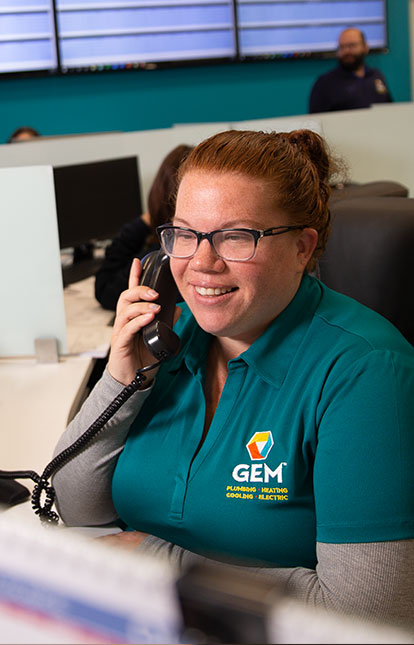
Carbon Monoxide and Smoke Detector Installation in New England

Questions? We’re Here to Help!
Quality, Friendly Service in Southern New England
Carbon Monoxide and Smoke Detectors Are Essential Safety Devices
Carbon monoxide detectors and smoke detectors can alert you to potential danger, protect your family and belongings from fire hazards as well as alert authorities quickly. Those detectors are necessary to protect you and your family. Whether you need a hard-wired system, battery backup, or ADA-Certified Strobe detector, a GEM technician will take care of proper placement and installation.
Annual Inspections Protect You and Your Home
Keep your family safe. Thoroughly inspect each detector device in your home every year. GEM can also help you set up a yearly visit schedule to test your smoke detectors and carbon monoxide detectors. Therefore ensuring they work properly and have battery back-up systems in case your power goes out.
Rhode Island Requires Battery-powered Detectors
Before purchasing or selling a home in Rhode Island, you must pass a state inspection that certifies that the home has enough battery-powered smoke detectors and CO detectors. Learn more the Rhode Island Fire Safety Code.
What is Carbon Monoxide?
Carbon monoxide (CO) is a colorless, odorless, and tasteless gas that is slightly less dense than air.
- It is produced as a by-product of burning fuels like wood, oil, natural gas, propane, kerosene, goal, and gasoline.
- Outdoors, CO often comes from the exhaust pipes of cars and boats.
- CO is harmless in small amounts, but can be deadly when it builds up inside your home, car, or garage.
- If your appliances, boiler, water heater, central heating system, or fireplace are not vented properly to the outdoors or develop a leak, carbon monoxide may start to build up to harmful levels inside your home.
- Because it is colorless, odorless, and tasteless, carbon monoxide is often known as the “silent killer”. That’s why it’s so important to have working CO detectors in your home.
Call GEM today at (833) 222-2953 to ask about checking your detectors and setting up a plan for annual inspections.
Ready To Talk to a Home Services Specialist?
